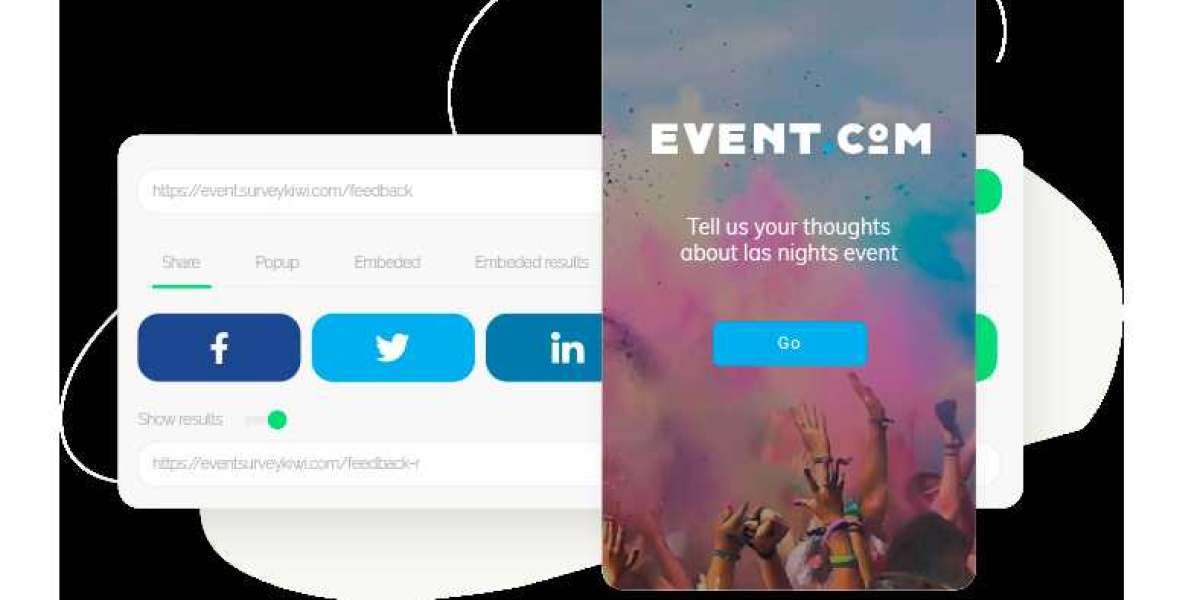Introduction
Planning an event requires significant time, effort, and financial investment. However, without understanding attendees' experiences, preferences, and pain points, you might miss valuable insights that could improve future events and maximize return on investment (ROI). One of the most effective ways to gather these insights is through well-structured event survey questions. By asking the right questions before, during, and after an event, you can optimize event planning, enhance attendee engagement, and ensure long-term success.
The Importance of Event Survey Questions in ROI Optimization
ROI in event planning isn’t just about financial gain; it includes increased brand awareness, stronger client relationships, and valuable data for future strategies. Event survey questions help you:
Understand attendee expectations and experiences.
Identify areas for improvement in logistics, content, and engagement.
Measure sponsorship and exhibitor satisfaction.
Enhance marketing strategies with real-time feedback.
By leveraging these insights, event organizers can make data-driven decisions that significantly improve future event performance.
Pre-Event Survey Questions: Setting the Right Expectations
Before your event, conducting a survey helps tailor your program to meet attendees' needs. Key pre-event survey questions include:
What are your main objectives for attending this event?
Which topics or speakers are you most interested in?
What type of networking opportunities would be valuable to you?
Do you have any dietary restrictions or accessibility needs?
How did you hear about this event?
Pre-event surveys enable organizers to fine-tune event planning, ensuring the content, logistics, and marketing align with attendees' expectations.
During-Event Survey Questions: Enhancing Engagement in Real Time
Live feedback during an event allows organizers to make immediate improvements. Consider using digital survey tools like SurveyKiwi to collect responses effortlessly. Here are some key questions to ask:
How satisfied are you with the current session?
Are the event facilities meeting your expectations?
Do you feel engaged and valued as an attendee?
What would improve your experience right now?
Are you facing any challenges during the event?
By actively monitoring responses, you can resolve issues in real time, ensuring a seamless event experience.
Post-Event Survey Questions: Extracting Valuable Insights
After the event, post-event surveys play a critical role in assessing success and identifying areas for improvement. Essential post-event survey questions include:
How would you rate your overall experience?
What did you find most valuable about the event?
Were your expectations met? Why or why not?
How likely are you to attend a future event by us?
What suggestions do you have for improvement?
Would you recommend this event to others?
These questions help measure attendee satisfaction, refine future events, and enhance brand reputation.
Using a Form Customizer Like SurveyKiwi for Effective Surveys
Maximize ROI with a Customizable Survey Tool
Collecting, analyzing, and acting on survey data is easier with a form customizer like SurveyKiwi. This tool allows event organizers to:
Design tailored surveys based on event goals.
Use real-time analytics to assess attendee engagement.
Customize questions to align with branding and objectives.
Automate follow-ups and reminders for higher response rates.
With SurveyKiwi, you can effortlessly create surveys that provide actionable insights, leading to better decision-making and improved event ROI.
Analyzing Survey Responses for Continuous Improvement
Gathering feedback is only valuable if you analyze and act on it. Here’s how you can use survey data effectively:
Identify Trends: Look for common themes in responses to pinpoint strengths and weaknesses.
Segment Attendees: Differentiate feedback based on demographics, ticket types, or engagement levels.
Share Insights with Stakeholders: Provide sponsors, speakers, and internal teams with relevant feedback.
Implement Changes: Apply learnings to improve future event planning.
Follow Up with Attendees: Show appreciation by acknowledging their feedback and informing them about upcoming events.
Conclusion
Event survey questions are a powerful tool for maximizing ROI, ensuring that each event is more successful than the last. By utilizing pre-event, during-event, and post-event surveys, organizers can make data-driven decisions that enhance attendee satisfaction, boost engagement, and drive business growth.
Using a smart form customizer like SurveyKiwi, you can streamline the feedback process, making it easier to collect, analyze, and act on valuable insights. Start optimizing your event strategy today by leveraging the power of well-crafted event survey questions.
FAQs
1. Why are event survey questions important?
Event survey questions help organizers understand attendee expectations, measure success, and identify areas for improvement, leading to better event experiences and higher ROI.
2. When should I conduct event surveys?
It’s best to conduct surveys before, during, and after an event to gather comprehensive feedback and make timely adjustments.
3. What is the best way to collect survey responses?
Using a digital survey platform like SurveyKiwi ensures efficient data collection, real-time analysis, and higher response rates.
4. How can I encourage attendees to complete event surveys?
Make surveys short and engaging, offer incentives, and use automated follow-ups to increase participation.
5. How do I analyze survey responses effectively?
Identify trends, segment data, share insights with stakeholders, and implement changes based on feedback for continuous event improvement.








